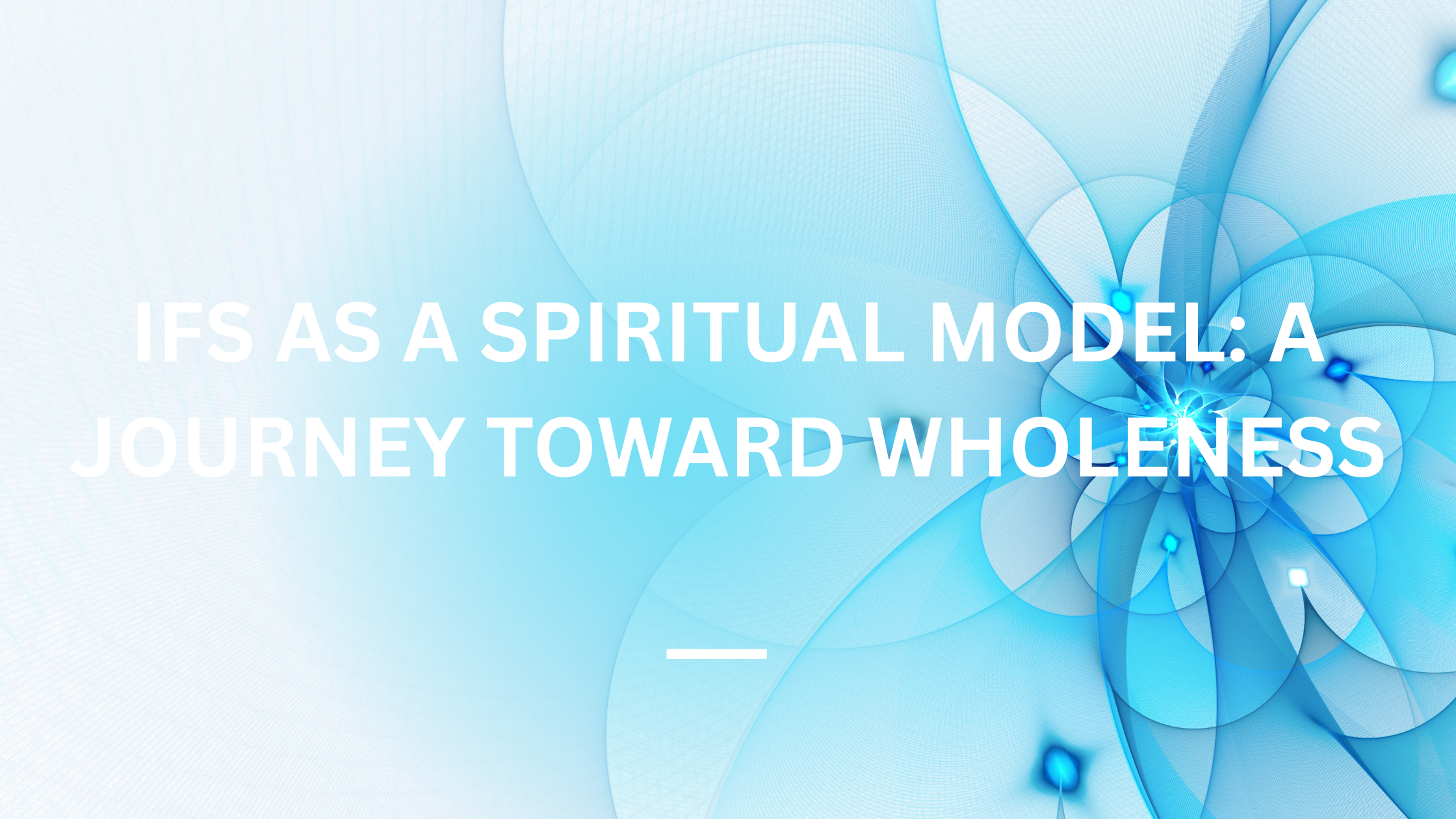IFS as a Spiritual Model: A Journey Toward Wholeness
A Journey Toward Wholeness
IFS as a Spiritual Model: A Journey Toward Wholeness
In my practice, I use Internal Family Systems (IFS) not only as a therapeutic model, but also as a spiritual path toward deeper self-connection and healing. While IFS is rooted in psychology, many people find that as they explore their inner world, something sacred begins to unfold — a sense of peace, compassion, and wisdom that feels like the essence of who they truly are.
IFS offers more than emotional healing. It invites us into a relationship with our inner world that is profoundly transformational and spiritual.
⸻
The Spiritual Heart of IFS
At the center of IFS is the understanding that every person has a core Self — an inner essence that is calm, curious, compassionate, and wise. This Self is never damaged, no matter what we’ve been through. It’s the steady presence that can hold all of our emotions and experiences with love.
When people begin to experience their Self — not as a concept, but as a living, felt presence — they often describe it in spiritual terms: light, awareness, soul, or simply home. This experience transcends language or theory. It’s a moment of remembering who we truly are beneath all the roles and defences.
⸻
Parts as Sacred Messengers
IFS teaches that we are made up of many parts — inner personalities or energies that hold emotions, beliefs, and memories. Some protect us from pain, others carry wounds from the past. Instead of judging or rejecting these parts, IFS invites us to turn toward them with curiosity and compassion.
This approach is deeply spiritual: meeting our own suffering with love rather than resistance. Each part, even the most reactive or burdened, has a sacred purpose. It developed to keep us safe in moments when we had no other choice. When we approach our parts with compassion, they begin to soften — and what once felt like pain or chaos becomes a path toward understanding and peace.
⸻
Self-Led Living as a Spiritual Practice
Living from the Self is not just a therapeutic goal — it’s a way of being. When we are Self-led, we respond to life from presence rather than fear. We listen more deeply, both to others and to the quiet wisdom within us. Life becomes less about control and more about alignment.
In this way, IFS becomes a spiritual practice — one that doesn’t require belief in any particular tradition, but rather invites a direct experience of inner truth and connection. It teaches us to live with compassion, awareness, and trust in the natural intelligence of our inner system.
⸻
Integration: Psychology Meets Spirituality
What makes IFS so unique is how gracefully it brings together psychological healing and spiritual awakening. It doesn’t ask us to rise above our pain or deny our humanity. Instead, it invites us to go through our pain with Self-compassion.
As our parts feel seen and understood, they relax. As they relax, our Self energy expands. And as Self expands, we naturally express love, creativity, and peace — qualities that all spiritual traditions recognize as the essence of the human spirit.
⸻
A Path of Healing and Awakening
Whether you think of it as therapy, inner work, or spiritual growth, IFS offers a path toward wholeness. It reminds us that healing doesn’t mean becoming someone new — it means coming home to who we already are.
When we turn inward with love, meet our parts with understanding, and allow the Self to lead, we begin to live with a deeper sense of freedom, connection, and peace.
⸻
“The Self is not something we must search for — it’s the quiet knowing that has always been within us, waiting for our attention.”
⸻
If You’d Like to Explore This Path
If you’re curious about exploring IFS as a path of healing and self-discovery, I would be honoured to guide you on this journey. Together, we can create a gentle space for your inner world to be seen, understood, and led by the wisdom of your Self.

